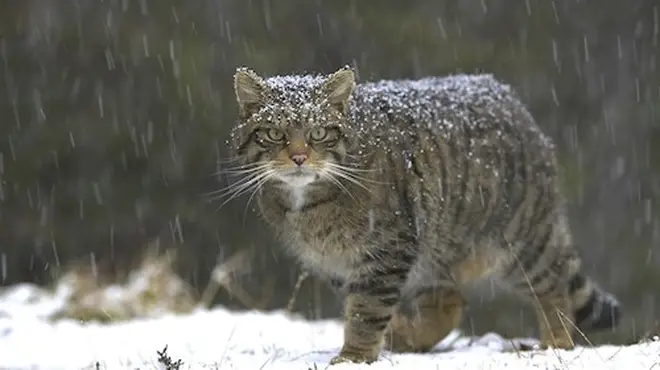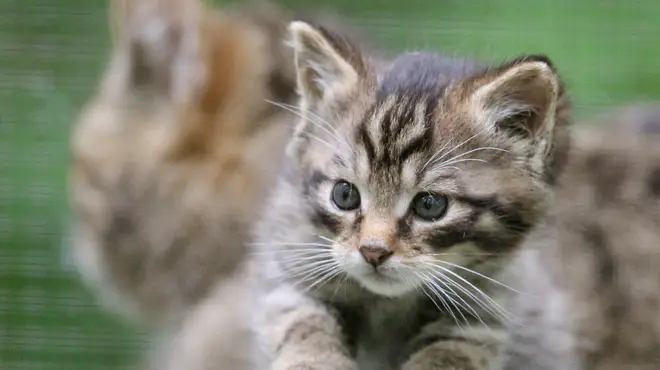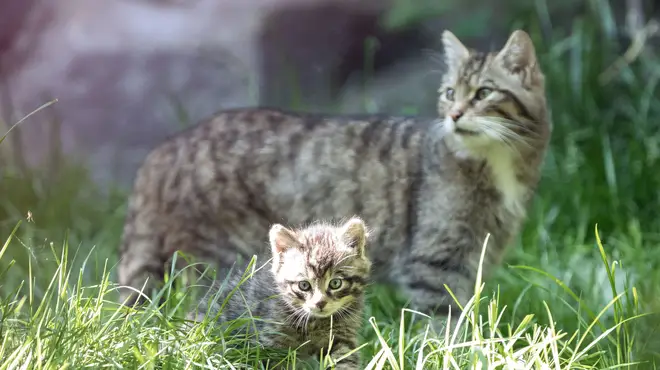
Richard Spurr 1am - 4am
19 November 2019, 12:09

A £3.2 million EU project due to launch in 2022 will see captive wildcats reintroduced into Scotland to help stop the species going extinct.
Over the next six years, the Royal Zoological Society of Scotland (RZSS) will lead the Saving Wildcats project.
The Cairngorms, in the eastern Highlands, is being explored as a likely location for the release.
A centre will be created at the Highland Wildlife Park near Aviemore providing facilities for breeding, veterinary care, remote monitoring and training.
Without the programme, it is highly likely wildcats would become extinct in Scotland.

Helen Senn, head of conservation and science programmes at RZSS, said: "Wildcats are on the brink of extinction in Scotland but it's not too late.
"With funding in place, it is tremendously exciting to begin the UK's first wildcat release project and bring together all the necessary resources and expertise to make it happen.
"Using wildcats from the existing captive population, as well as cats from Europe to boost the gene pool, the reintroduction centre will provide a sustainable source of wildcats for years to come.
She continued: "The Cairngorms have historically been a key part of the wildcat range and we are working closely with the partners to understand which is our preferred first release site.
"Further wildcat releases may also take place in other strategically important locations across Scotland, with the potential to support well-planned future efforts in the rest of the UK."

The project is being funded with the £3.2 million contributions from the European Union's Life Programme.
Scottish Wildcat Action partnership also includes the National Trust for Scotland, the People's Trust for Endangered Species and the European Nature Trust.
Andrew Kitchener, chair of Scottish Wildcat Action, said: "The Scottish Wildcat Action partnership is delighted with this news and it is testament to the strong working partnership formed under Scottish Wildcat Action that we have been able to secure funding for this next critical phase of work."
The RZSS will also work with European partners Norden's Ark, from Sweden, and Spain's Junta De Andalucia.
Martin Gaywood, Scottish Natural Heritage species projects manager, added: "With Saving Wildcats, expert partners are working together for a flagship project to re-establish a healthy wildcat population in Scotland.
"But releasing species into the wild for conservation purposes is very complex and challenging.
He continued: "With the first wildcats expected to be released into the wild in 2022, now is the time for a public discussion on domestic and feral cat populations, and how we manage these, and the public will have an important role in helping minimise future hybridisation.
"Responsible cat ownership, including microchipping, neutering and vaccinations, is one way we can help reduce devastating effects on wildcats."